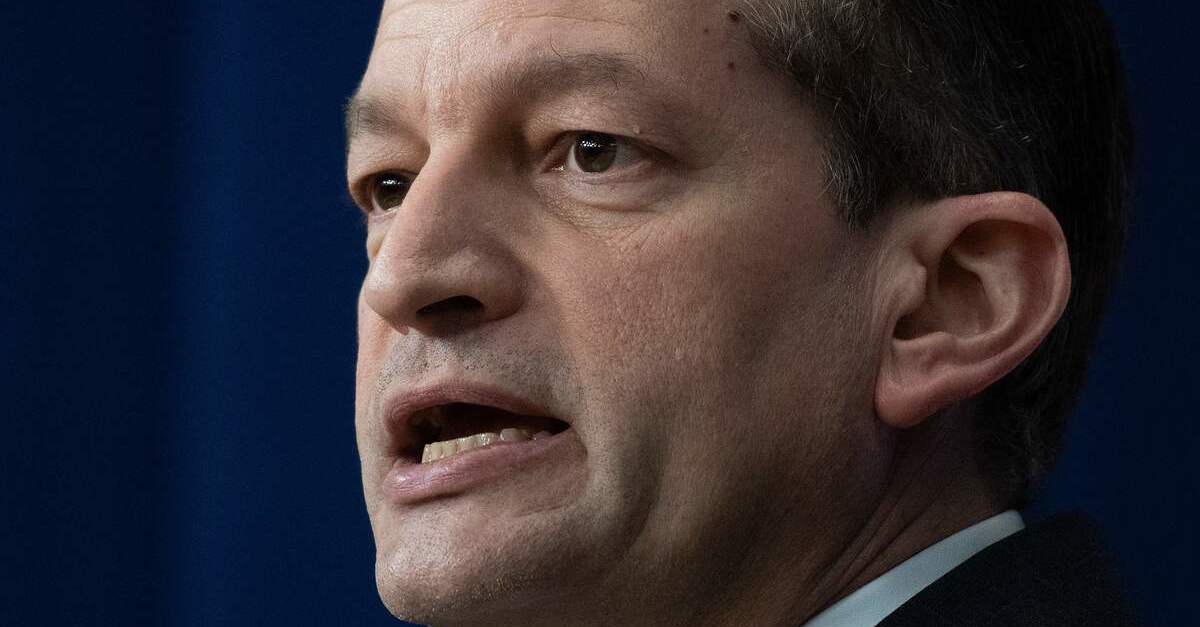
White House Chief of Staff Mick Mulvaney is reportedly undermining the power of embattled Labor Secretary Alexander Acosta. A Bloomberg Law report from Tuesday detailed how Mulvaney is starting to take the rulemaking process out of Acosta’s hands.
Bloomberg reported that Mulvaney was frustrated with the pace of deregulatory rule changes that were coming out of the Acosta-run Labor Department. Mulvaney set up a process in which the White House and Acosta staffers can settle regulatory disputes.
But the review system has ,ed to frustration for Acosta and his staff; they have been losing so many battles with Mulvaney that they have stopped appealing decisions, according to Bloomberg.
“Acosta wasn’t really interested in getting those rules done until Mick Mulvaney started taking over, and then everything started moving at the department because Mulvaney doesn’t mess around,” a former Trump Administration official said. “When Mulvaney took over, they started scrambling to try to make up for lost time.”
Mulvaney’s step up in power could mean long-awaited decisions on job training, overtime pay and workplace safety rules.
This power struggle happens in the wake of revelations in the Jeffrey Epstein underage prostitution case (relating to Acosta’s time as U.S. Attorney for the Southern District of Florida). A federal judge ruled that Acosta and others broke the law by not informing Epstein’s accusers about the non-prosecution agreement Acosta’s office made with the billionaire. The agreement allowed Epstein pleaded guilty to a less serious state charge of soliciting prostitution from underage girls. Acosta’s office also helped shielded Epstein’s co-conspirators. U.S. District Judge Kenneth A. Marra detailed the agreement:
On October 10, 2007, [Epstein defense attorney Jay] Lefkowitz] sent a letter to U.S. Attorney Alex Acosta stating, in. pertinent part: “Neither federal agents nor anyone from your Office should contact the identified individuals to inform them of the resolution of the case, including appointment of the attorney representative and the settlement process. Not only would that violate the confidentiality of the agreement, but Mr. Epstein also will have no control over what is communicated to the identified individuals at this most critical stage. We believe it is essential that we participate in crafting mutually acceptable communication to the identified individuals.” The letter further proposed that the attorney representative for the victims be instructed that “[t]he details regarding the United States’s investigation of this matter and its resolution with Mr. Epstein is confidential. You may not make public statements regarding this matter.”
U.S. Attorney Acosta then met with Lefkowitz for breakfast and Lefkowitz. followed up with a letter stating, “I also want to thank you for the commitment you made to me during our October12 meeting in which you . . . assured me that your Office would not . . . contact any of the identified individuals, potential witnesses, or potential civil claimants and their respective counsel in this matter.”
Epstein got 13 months in county jail and home detention for solicitation and procurement of minors for prostitution.
[Image via Jim Watson/AFP/Getty Images]